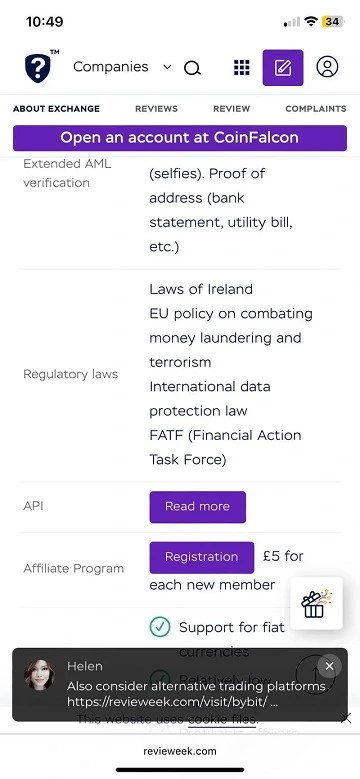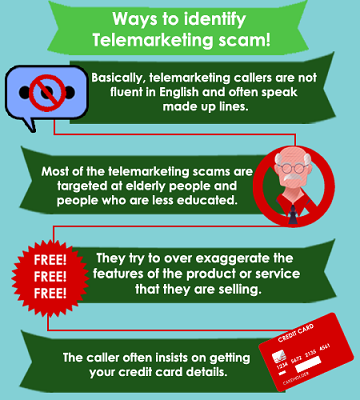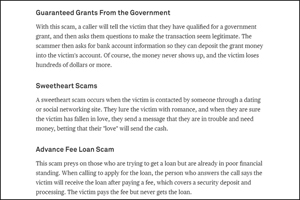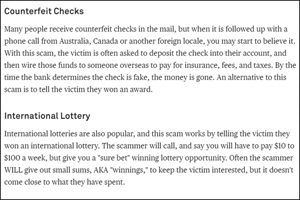Telemarketing Scams
Discover how to stay safe from telemarketing scams. Our guide offers insights into recognizing and avoiding deceptive sales tactics, empowering you to protect yourself and your loved ones from fraudulent telemarketers.

Navigating Telemarketing Scams: Awareness and Prevention
Telemarketing is an industry where transactions occur over the telephone. Unfortunately, it is also a breeding ground for scams, often referred to as telemarketing fraud, telephone fraud, and telephone scams.
Telemarketing scams rank high on the list of fraudulent activities recognized by the Federal Trade Commission. Many of these scams remain under the radar, with victims hesitating to report due to embarrassment. This underreporting contributes to the challenge of curbing such deceptive practices. Remarkably, a significant portion of telemarketing scams specifically targets the elderly demographic. Scammers find them more susceptible and trusting, making them prime targets. Statistics reveal that a staggering 80% of successful telemarketing frauds are perpetrated against elderly individuals.
The tactics employed vary, with some users willingly registering for telemarketing services. However, others become targets through unsolicited emails or by being listed in telephone number directories.
Understanding Telemarketing Scams:
A telemarketing scam involves deceptive practices where scammers contact victims via telephone calls, offering products or services that seem too good to be true. The primary goal of telemarketing scammers is to obtain the user's credit card information.
Spotting Telemarketing Scams:
Identifying telemarketing scams can be challenging since legitimate companies also use telemarketing to promote their products and services. However, there are specific indicators that may signal potential telemarketing fraud.
Various Manifestations of Telemarketing Scams:
-
Advance Fee Telemarketing Fraud:
Scammers in telemarketing calls often request an upfront fee to be paid before delivering the promised product or service. They assure users that the advance fee will be refunded upon receipt of the product or service. -
Pyramid Telemarketing Scheme:
Telemarketing criminals entice individuals into pyramid schemes, showcasing enticing earnings through referrals. Ultimately, users find themselves gaining nothing from the pyramid scheme. -
Fake Checker Telemarketing Scam:
Scammers adopt the names of legitimate businesses, asserting that users have been overpaid in an online sale. They send fake checks to victims, instructing them to wire back the excess amount via a telemarketing call. Once the user wires the funds, they realize the check is fraudulent, leading to irreversible financial loss. -
Telemarketing Donation Scam:
Fraudulent telemarketing callers pose as representatives from charity organizations, soliciting donations under the guise of supporting a seemingly legitimate cause. The scammer extracts credit card information from unsuspecting users who believe they are contributing to a genuine charity. Users are urged to exercise caution when dealing with telemarketing calls, verifying company information before concluding any transactions.
Additional Insights on Telemarketing Scams:
Telemarketing scams continue to evolve, and it's crucial for consumers to stay informed about emerging tactics. Here are some additional insights to enhance your awareness:
Impersonation Scams:
Scammers may impersonate reputable companies, government agencies, or even law enforcement in telemarketing calls. They use false identities to gain trust and extract sensitive information or payments.
Robocall Deceptions:
Robocalls, automated phone calls delivering pre-recorded messages, are a common tool for telemarketing scams. Be cautious of unsolicited robocalls, especially those claiming urgent matters or enticing offers.
Phantom Debt Collection:
Scammers often pose as debt collectors, claiming that the victim owes money for an unpaid debt. They use fear tactics, threatening legal action or arrest, to coerce individuals into making immediate payments.
Utility Scams:
Fraudulent telemarketers may pose as utility company representatives, threatening service disconnection unless immediate payment is made. Legitimate utility companies typically communicate billing matters through official channels rather than unsolicited calls.
Stay Vigilant:
Protect yourself by staying vigilant. Verify the identity of the caller, especially if they demand personal or financial information. Legitimate companies will provide contact information for independent verification.
Report Suspicious Calls:
If you receive suspicious telemarketing calls, report them to the Federal Trade Commission (FTC) or your local consumer protection agency. Reporting helps authorities take action against scammers and protect others from falling victim.







